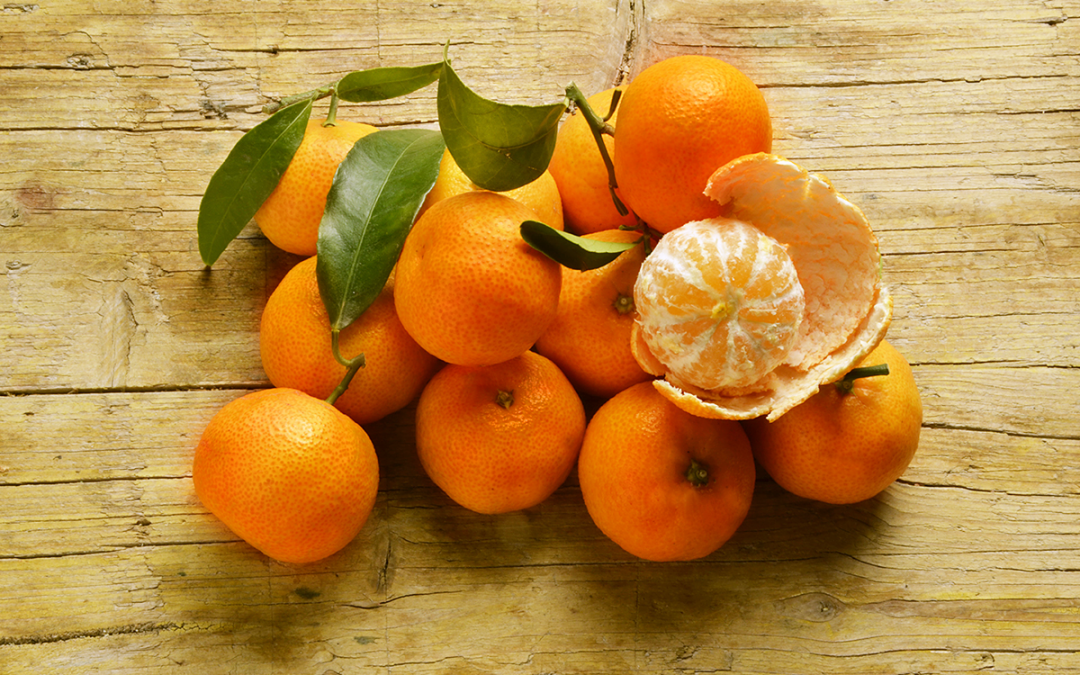Mandarins have an impressive nutritional profile, packing vitamin C, fiber, and other essential nutrients.
Nutritional profile
Mandarins boast an impressive nutritional profile. One medium mandarin (88 grams) packs the following nutrients.
- Calories: 47
- Carbs: 12 grams
- Protein: 0.7 grams
- Fat: 0.3 grams
- Fiber: 2 grams
- Vitamin C: 26% of the Daily Value (DV)
- Magnesium: 2.5% of the DV
- Potassium: 3% of the DV
- Copper: 4% of the DV
- Iron: nearly 1% of the DV
This potent little fruit delivers over a quarter of the DV for vitamin C, which is important for skin health, wound healing, and proper immune function.
Mandarins also provide important minerals. While they’re not a rich source of copper, they boast more of it than most fruits. Copper is essential to health, as it aids red blood cell production and iron absorption. Thus, it helps transport oxygen to your tissues.
Along with vitamins and minerals, one medium (88-gram) mandarin packs 8% of the DV for fiber. Fiber feeds your beneficial gut bacteria, which aid digestion and may even help reduce your risk of chronic conditions like diabetes and heart disease.
Benefits
Like most citrus fruits, mandarins are loaded with vitamins, fiber, and beneficial plant compounds. Consuming them regularly may provide many health benefits. What’s more, they’re easy to pack as a snack, toss into smoothies, or peel into salads or gelatin desserts.

Rich in antioxidants
Mandarins are rich in health-boosting plant compounds like flavonoids. Flavonoids are readily found in foods. They’re a type of antioxidant that helps defend your body against an imbalance of free radicals, which could otherwise lead to oxidation. Oxidation can promote aging and the onset of diseases like cancer and heart disease. Another way that flavonoids may help protect against cancer is by suppressing genes that support cancer growth and inactivating cancer-promoting compounds. However, more research in humans is needed to determine just how much citrus fruit you should eat to achieve these effects.
Powers your immune system
Given their high content of vitamin C, mandarins may strengthen your immune system.
Vitamin C is an antioxidant that boosts the function of your immune cells to fight against oxidative damage. It also promotes the death of harmful microbes.
What’s more, it improves skin and tissue integrity. In fact, supplementing with high doses of vitamin C may shorten wound healing time in certain situations.
Boosts gut health
Fiber benefits your digestion. It’s found in two forms — soluble and insoluble.
Citrus fruits, including mandarins, are especially rich in soluble fiber. Soluble fiber forms a gel in your digestive tract. This draws water into your gut to soften stools, potentially easing bowel movements.
Mandarins also have some insoluble fiber. In fact, they have more of this type of fiber than many other fruits do. Insoluble fiber passes through the gut without breaking down.
Both types of fiber are associated with a decreased risk of chronic diseases and may even help you lose weight.
May reduce kidney stone risk
A large population study associated a diet rich in citrus fruit like mandarins with a reduced risk of kidney stones, which are crystallized minerals that your body excretes in urine. They can be extremely painful to pass.
Low citrate levels in the urine can cause certain types of kidney stones to form. Fortunately, regularly consuming citrus fruits can boost your citrate levels, which is thought to reduce your risk of kidney stones.
Still, this relationship requires further research before firm conclusions can be made.
(Article by Healthline)


Recent Comments